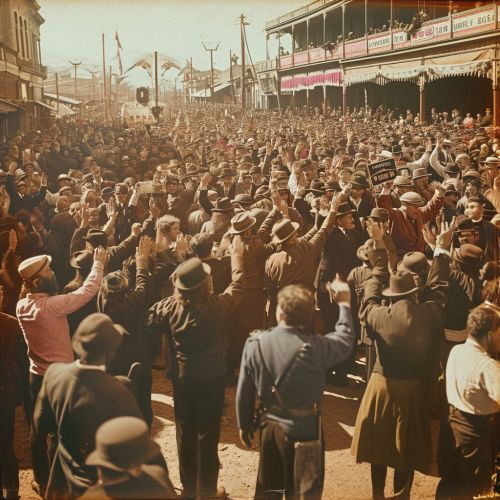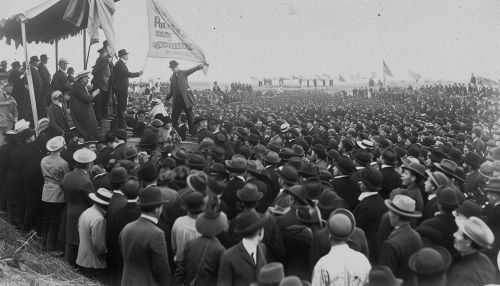Populist Party
Origins and Early History
The Populist Party, also known as the People's Party, was a significant political force in the United States during the late 19th century. The party emerged in the 1890s as a response to the perceived economic injustices faced by farmers in the South and Midwest and the increasing power of large corporations and banks.
The roots of the Populist Party can be traced back to agrarian unrest in the aftermath of the Civil War. The economic depression of the 1870s hit farmers particularly hard, leading to the formation of several farmers' alliances and cooperatives. These groups sought to address the economic hardships faced by farmers, including high railroad freight rates, oppressive loan terms, and low crop prices.


Platform and Ideology
The Populist Party's platform was largely based on the demands of these farmers' alliances. The party advocated for a range of economic reforms, including the free coinage of silver to increase the money supply, a graduated income tax, and government ownership of railroads, telegraphs, and telephones. The Populists also called for direct election of Senators, a shorter workday, and immigration restrictions.
The Populists' ideology was rooted in a belief in the power of the common people and a distrust of elites and big business. They saw themselves as representing the interests of the 'producing classes' - farmers and laborers - against the 'non-producing' capitalist class. This populist ideology has had a lasting impact on American politics, influencing later movements and parties.
Impact and Legacy
The Populist Party had a significant impact on American politics in the 1890s. In the 1892 presidential election, Populist candidate James B. Weaver won over a million votes and carried four states. The party also elected several members to Congress and won governorships and state legislatures in the South and Midwest.
Despite these successes, the Populist Party struggled to maintain its momentum. The party's alliance with the Democratic Party in the 1896 presidential election proved controversial and led to divisions within the party. After the defeat of the Democratic-Populist candidate William Jennings Bryan, the Populist Party went into decline.
The legacy of the Populist Party, however, extends beyond its brief existence. Many of the economic reforms the Populists advocated for were later enacted, including the direct election of Senators and the establishment of a federal income tax. The Populist Party's emphasis on economic justice and its critique of big business continue to resonate in American politics today.
